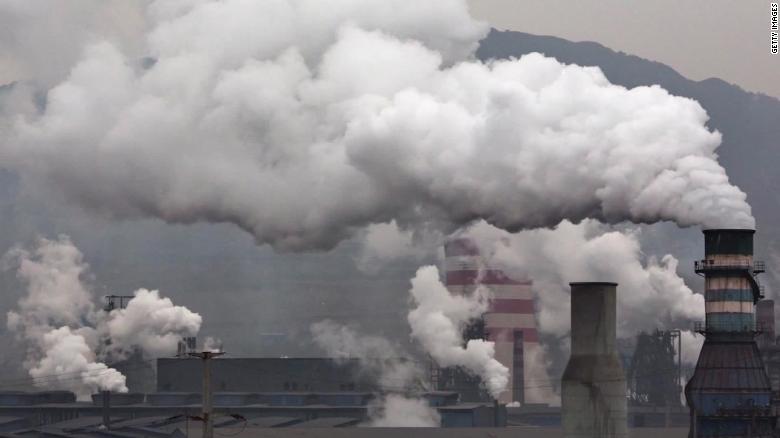How our responses
to climate change and the coronavirus are linked
In this
sense, the 2020 corona virus pandemic may lead to a deeper understanding of the
ties that bind us all on a global scale and could help us get to grips with the largest
public health threat of the century, the climate crisis.

A
first lesson we are drawing from the COVID-19 pandemic and how it relates to
climate change is that well-resourced, equitable health systems with a strong
and supported health workforce are essential to protect us from health security
threats, including climate change. The austerity measures that have strained
many national health systems over the past decade will have to be reversed if
economies and societies are to be resilient and prosperous in an age of change.
For
example, the people of Haiti would have been much more adept in coping with and
recovering from the lasting effects of 2016’s Hurricane Matthew – which was exacerbated
by climate change – if they had had a resilient and well-resourced health
system in place to support them. Similarly, many Iranian lives could have been
saved at the early stages of the COVID-19 outbreak in the country, if its beleaguered
healthcare system had been better prepared for what was to come.
Secondly,
the ongoing pandemic illustrates how inequality is a major barrier in ensuring
the health and well being of people, and how social and economic inequality
materializes in unequal access to healthcare systems. For example, the health
threat of the novel corona virus is, on average, greater for cities and people exposed
to higher levels of pollution, which are most often people living in poorer
areas. The same is true for the health impacts of climate change, with one of
its major causes, the burning of fossil fuels, also adding pollution to
the air and disproportionately impacting the health of those in poverty.
The WHO
estimates that by reducing the environmental and social risk factors people are
exposed to, nearly a quarter of the global health burden (measured as loss from
sickness, death and financial costs) could be prevented. Creating healthy
environments for healthier populations and promoting Universal Health Coverage
(UHC) are two of the most effective ways in which we can reduce the long-term
health impacts from – and increase our resilience and adaptive capacity to –
both the corona virus pandemic and climate change.
Third,
the global health crisis we find ourselves in has forced us to dramatically
change our behavior in order to protect ourselves and those around us, to a
degree most of us have never experienced before. This temporary shift of gears
could lead to a long-term shift in old behaviors and assumptions, which could
lead to a public drive for collective action and effective risk management. Even
though climate change presents a slower, more long-term health threat, an
equally dramatic and sustained shift in behavior will be needed to prevent
irreversible damage.
Lastly,
crises like these offer an opportunity for a regained sense of shared humanity,
in which people realize what matters most: the health and safety of their loved
ones, and by extension the health and safety of their community, country and
fellow global citizens. Both the climate crisis and unfolding pandemic threaten
this one thing we all care about.
When we
eventually overcome the COVID-19 pandemic, we can hopefully hold on to that
sense of shared humanity in order to rebuild our social and economic systems to
make them better, more resilient, and compassionate. The financial and social
support packages to maintain and eventually resuscitate the global economy
post-pandemic should therefore promote health, equity, and environmental
protection.
Ultimately,
public health is a political choice. A choice we are now confronted with, and
one we will have to make over and over again as we transition to a more
resilient, zero-carbon, just and healthier future.
responses to climate change and the coronavirus are linked
![responses to climate change and the coronavirus are linked]() Reviewed by Muhammad Umar
on
April 16, 2020
Rating:
Reviewed by Muhammad Umar
on
April 16, 2020
Rating:








No comments:
Post a Comment